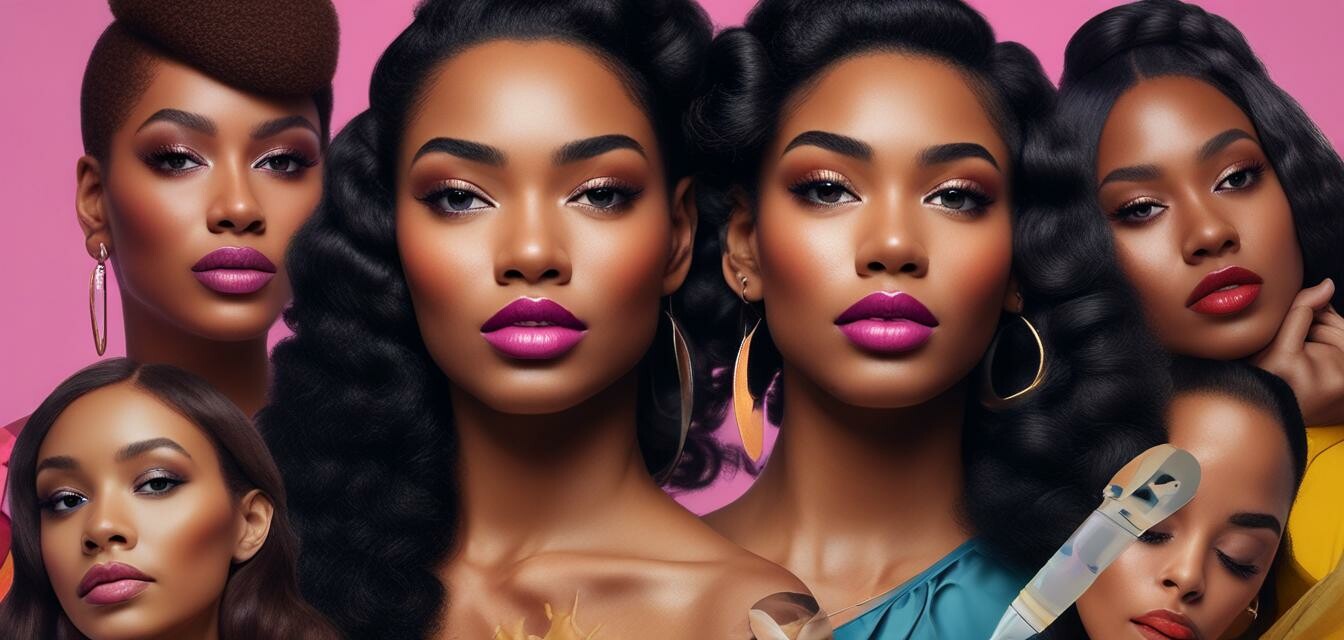
The Evolution of Black Beauty Standards
- Understanding the historical context of beauty standards in the Black community.
- Highlighting the shift towards diversity and inclusivity in modern beauty products.
- Exploring how representation has changed in media and beauty marketing.
- Recognizing key figures driving the transformation in beauty standards.
The concept of beauty is ever-evolving, shaped by cultural influences, historical contexts, and individual expressions. In the Black community, beauty standards have undergone significant shifts, adapting to changing perceptions and embracing diversity. This article discusses the journey of Black beauty standards, how they have changed over the years, and the modern beauty products that celebrate this diversity.
Historical Context of Beauty Standards
Beauty standards for Black individuals have historically been influenced by societal norms, media portrayals, and cultural expectations. Often, these standards have reflected a Eurocentric ideal that prioritized lighter skin, straight hair, and specific physical attributes. During various eras, the definitions of beauty have imposed psychological effects on individuals, leading to feelings of inadequacy among many.
Colonization and Eurocentrism
The colonization period marked a significant shift in beauty ideals, promoting the notion that European features were superior. This caused a rejection of natural Black beauty, resulting in the widespread use of skin-lightening products and hair straightening treatments.
Representation in Media
The media has played a crucial role in shaping beauty perceptions. Over the years, representation of Black beauty in film, television, and advertisements has seen an increase, shining a light on natural hair textures, varied skin tones, and diverse body types.
Influential Figures
Many personalities have helped redefine beauty standards within the Black community, showcasing the beauty of natural hair, unfiltered skin, and alternative aesthetics. Figures such as Lupita Nyong'o, Viola Davis, and Beyoncé have undoubtedly influenced the beauty landscape, inspiring new generations to embrace their unique qualities.
Modern Beauty Products Celebrating Diversity
Today, the beauty industry is pivoting toward inclusivity, with numerous brands and products designed specifically for Black consumers. These modern products not only cater to diverse skin tones but also honor and reflect varied cultural backgrounds.
| Product Type | Modern Standards | Cultural Significance |
|---|---|---|
| Foundation | Wide range of shades | Allows individuals to find their perfect match |
| Hair Care | Formulations for natural textures | Emphasizes the beauty of curls, coils, and waves |
| Makeup | Diverse palettes to suit various skin tones | Encourages personal expression through color |
| Skincare | Products for hyperpigmentation and other specific needs | Addresses common concerns within the community |
Beauty Standards in Today's Society
As society evolves, so do the standards of beauty. The modern Black beauty landscape is characterized by inclusivity, with an emphasis on self-love and acceptance. Social media platforms have become powerful tools in this evolution, allowing individuals to share their experiences and redefine beauty according to personal standards.
The Role of Social Media
Social media has allowed Black individuals to challenge mainstream beauty standards and promote diverse definitions of beauty. Hashtags like #BlackGirlMagic and #MelaninMagic celebrate the unique attributes of Black individuals, encouraging confidence and self-acceptance.
Looking Ahead
The future of Black beauty standards looks promising as the beauty industry continues to celebrate diversity. More brands are recognizing the importance of representation and responding to the unique needs of the Black community. As consumers, we should support brands that prioritize inclusivity and authenticity.
Pros
- Increased representation in media and beauty brands.
- Modern products cater specifically to diverse needs.
- Empowerment through self-expression and acceptance.
Cons
- Not all brands are fully committed to diversity.
- Historical beauty standards can still influence societal perceptions.
Key Figures Influencing Change
Many entrepreneurs, influencers, and activists are driving the conversation around Black beauty standards. Their efforts are not only making an impact in the beauty industry but are also fostering a greater sense of community and unity.
Conclusion
The evolution of Black beauty standards illustrates a journey shaped by struggle, resilience, and self-love. As we continue to celebrate diversity today, it’s essential to support brands and narratives that foster an inclusive representation of beauty across all spectrums. Join the movement, embrace your unique beauty, and continue spreading awareness about the importance of diversity in beauty standards.
For more tips on personal care, check out our sections on Body Care and Haircare. Stay informed with our News and Trends to find out how beauty is evolving every day.